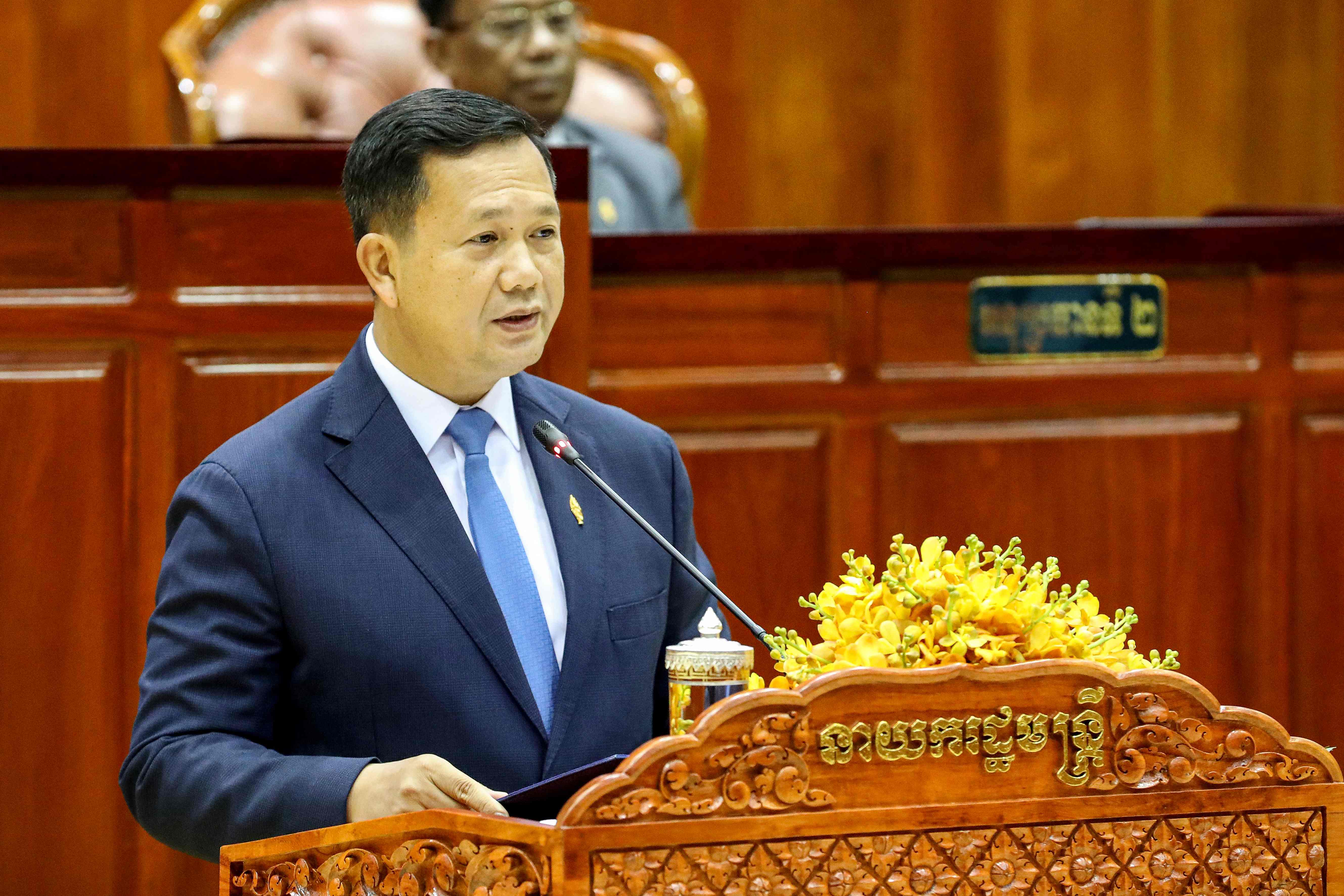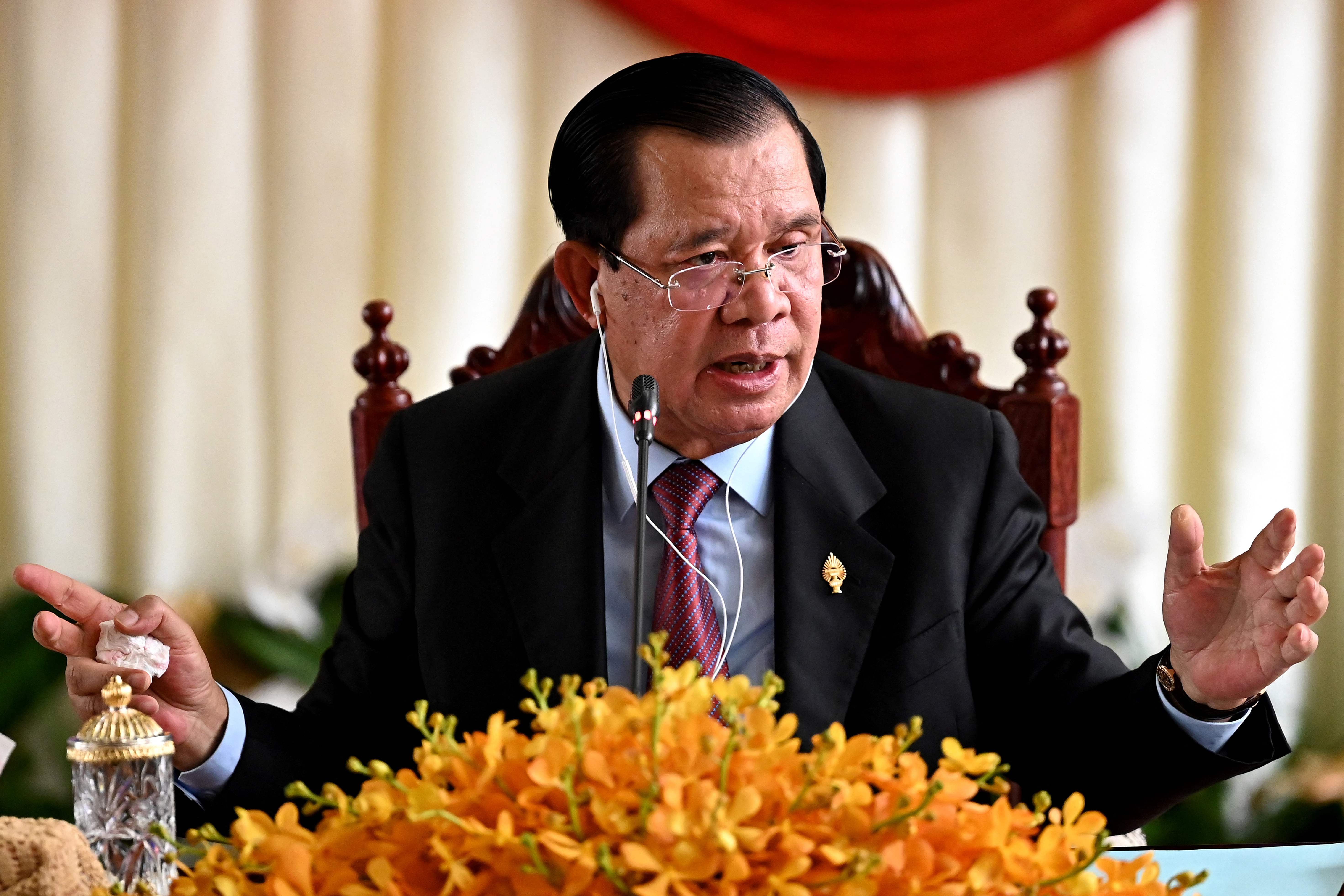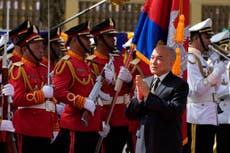Cambodia’s leader hands power to son after ruling country for nearly 40 years
All eyes on Hun Manet as he takes charge as Cambodia’s prime minister amid strained ties with Western powers

The newly-elected Cambodian parliament on Tuesday endorsed Hun Manet as the prime minister, ending his father's nearly four-decade-long leadership.
Hun Manet, 45, received overwhelming backing of the National Assembly, which is dominated by his Cambodian People's Party (CPP). He was elected as the prime minister following last month's election where he contested as a candidate.
The election was dismissed as a sham due to the absence of any prominent opposition to the ruling party.
In late 2021, Hun Manet's father and former ruler, Hun Sen, anointed his Western-educated son as successor and was later endorsed by the CPP as "future prime minister".
While not much is known about Hun Manet's vision for the country of 16 million people, it is unlikely that Cambodia would immediately pivot to a greater democracy with reopened political space to opponents and trade unions.
In his speech, Hun Manet told lawmakers that the election was free and fair and promised he would implement the CPP's policies and ensure peace, economic growth, better infrastructure, and wage increases for civil servants and garment workers.
He lauded his 71-year-old father and the older generation of politicians for steering Cambodia from years of devastating civil war to an era of peace, growth and better living for its people.
"The bright wisdom, diverse experiences, pragmatism, and the levels of adeptness, intelligence and savviness that (Hun Sen) and excellencies leaders have displayed ... is a mastery of the art of leadership, one that we as the future generation can only aspire to," he said.

Hun Sen, one of the world's longest-serving leaders, reportedly intends to play an active political role for at least a decade in an effort to fend off political challenges to his son. He has expressed the desire to become president of the upper house senate next year.
“The generational transition is designed to keep the power of the political-cum-business elite intact and perpetuate neo-patrimonial arrangements,” Astrid Noren Nilsson, a Cambodia expert at Sweden’s Lund University, told the Associated Press.
Hun Manet's first months in power will be closely watched by or signs whether he favours a liberal approach in improving Cambodi's strained ties with the West or continues to maintain the authoritarian status quo of his father.
After graduating from the West Point military academy in the US, Hun Manet rose quickly through the ranks of Cambodi's armed forces while leading a counter-terrorism team and then serving as deputy chief of his father's bodyguard unit.
He later went on to become army chief and deputy military commander.
On the political front, Hun Manet led the youth wing of the ruling party and made his way up the ranks to become a member of the standing committee.
He is also well educated, with a masters degree from New York University and a doctorate from Britain's Bristol University, both in economics, in stark contrast to his father, who had no formal education.
Join our commenting forum
Join thought-provoking conversations, follow other Independent readers and see their replies
Comments


Bookmark popover
Removed from bookmarks